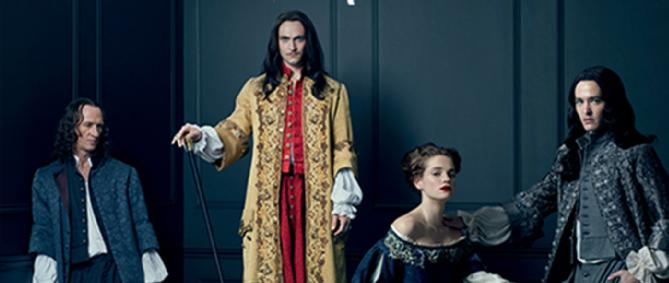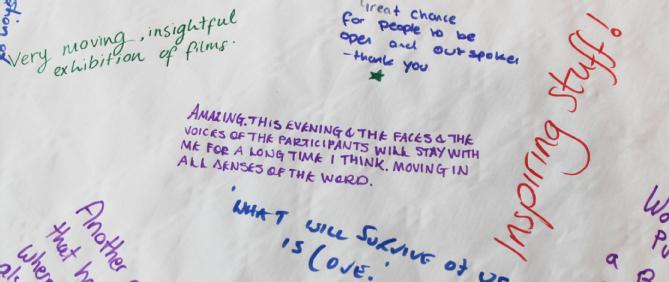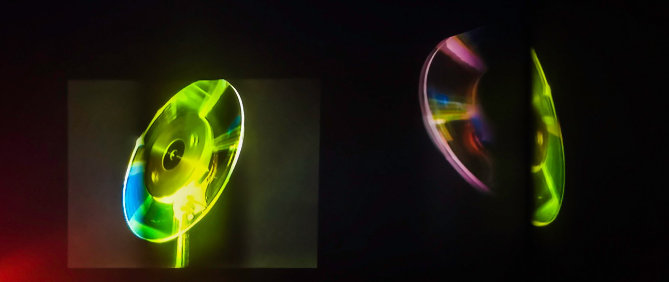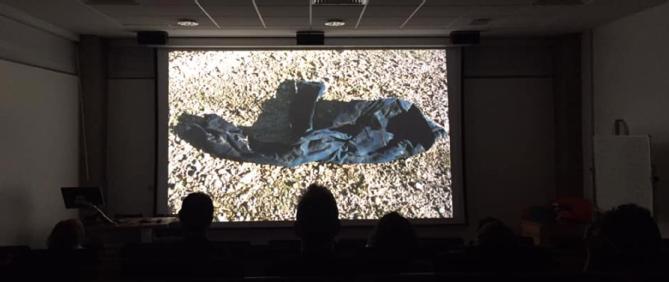Research Collaborations
This department makes an outstanding contribution to the vitality and intellectual infrastructure of its disciplines, as well as provoking wider public debate. Our research projects, outputs and events are enriched by collaborations with national and international HEI institutions, archives, museums and the heritage sector, film and programme makers, the education sector and other cultural organisations. Our research collaborations directly advance our strategic aims of supporting outstanding research and interdisciplinarity, and extend our international reach and scope for the benefit of non-academic partners.
In addition to these collaborations with external people and organisations, members of the department also lead two of the university’s Global Research Priorities - Connecting Cultures (Helen Wheatley) and Habitability (Catherine Constable). The GRP programme is designed to foster interdisciplinary, collaborative working across the university and with external partners.

Man Engine/Tick Box Bus
Rachel Moseley’s work on the screen representation of Cornwall, and on Cornwall as a case study for understanding investment on the arts from a regional perspective for the Warwick Commission on Cultural Value, found platforms both locally and in Cornwall. A screening and Q&A event with Simon and Brett Harvey, the makers of Cornish Film Brown Willy at Warwick Arts Centre, and with Mark Jenkin at the Newquay premiere of Bait, raised awareness about the significance of the representation of the region on film, while her collaboration on the Tick Box Bus and Man Engine Project projects engendered wide-ranging conversations about raising awareness about minority and regional identity through arts engagement in Cornwall. Tick Box Bus offered friendly, open space to discuss Cornish identity and raise awareness of the campaign for a Cornish 'tick box' for the 2021 Census, whilst the Man Engine Project was a multi-faceted cultural heritage project commissioned in June 2015 by the Cornwall Mining World Heritage Site (CMWHS) to increase awareness and appreciation of Cornwall’s distinctive mining heritage and encourage contemporary activity that responds to cultural inheritance.

Centre for Television Histories
Colleagues based in the Centre for Television Histories have been working collaboratively to bring archive television to public audiences in the Midlands and beyond. The Centre’s collaborations with the Herbert Art Gallery and Museum have led to the co-devising of The Story of Children’s Television exhibition and to TV history-focused contributions to 2 Tone: Lives & Legacies. Its Ghost Town: Civic Television and the Haunting of Coventry project has grown into collaborations with the Media Archive for Central England, the BBC’s Archive team, Illuminations (on the BBC4 documentary Phoenix at Coventry), Coventry Cathedral, the Photo Archive Miners, and Flatpack Film Festival. The Centre has worked to shape policy around the preservation of our national and international screen heritage, collaborating with organisations such as the BFI, the BBC, and MACE. Our research has had a direct impact on policy guiding the prioritisation of digitisation projects, and on public access to the holdings of these major custodians of screen culture in the UK. The Centre is very keen to hear from any external organisations that have a stake in broadcasting history.

Producing the Post National Popular and New Horizons in World Cinema
Alastair Phillips currently collaborates with King’s College London and Sorbonne Nouvelle-Paris 3 on the AHRC-funded research project ‘Producing the Post National Popular’, which he co-leads. This is an international network that combines diverse research perspectives on the recent and growing phenomenon of mainstream French films’ and television series’ transnational popularity. A major impetus of the project is to redress the imbalance of research on European screen cultures that is currently heavily skewed in favour of ‘art’ over popular cultural artefacts and trends. Its cultural programme includes various public conferences, talks and school events. Alastair has also been working with Nagoya University on the ‘New Horizons in World Cinema Project’, which comes out of an intensified research collaboration with one of Warwick’s leading research partners and has so far led to the development of an innovative doctoral level co-tutelle programme, a series of rolling symposia and public events, and the publication of the most comprehensive book in English to date on Japanese cinema.
Screening Disappearance
Tiago de Luca has been leading on the ‘Screening Disappearance’ project in partnership with the University of São Paulo (USP), Brazil. This involves the participation of other members from Warwick’s Film and Television Studies (Charlotte Brunsdon, Karl Schoonover, Alastair Phillips) and members from the Department of Cinema, Radio and Television at USP, with Cecília Mello as the lead partner overseas. Bringing together scholars with a wide range of interests and specialisms, ‘Screening Disappearance’ aims to explore the way in which contemporary film and related audiovisual media have confronted the task of recording disappearing realities in the context of our environmentally precarious times. The project already generated one symposium held at Warwick in May 2019, where members from both departments presented their research on the topic, followed by a screening of the film El Mar, La Mar (2018) and a Q & A session with one of its directors, Joshua Bonnetta. A series of events and activities were lined up to take place at USP in May 2020, including: a film season open to general public, research talks and conversations with filmmakers. All of these activities had to be postponed due to pandemic, but the participants have been keeping in touch and hope to be able to make some of these events happen in the near future.

Life:Moving: The potential of film to affect personal, social and political change
Michele Aaron’s Life:Moving project, about filmmaking as an aspect of end of life care, has had a significant impact on palliative care research, practice and policy making, and is used in the training of practitioners working in this area. Its resultant ‘ethical guidelines’ is used in the training of filmmakers working with vulnerable groups. Since 2014, and the original partnership with John Taylor Hospice, Aaron has undertaken an ongoing series of collaborative activities – projects, curations, exhibitions and events – further exploring and/or exploiting the potential of film to effect personal, social and political change. Working in collaboration with artists (like George Saxon), filmmakers (like Briony Campbell or the 250 Film Club, Kigali), public health organisations (like Groundswell, Sydney or the African Palliative Care Association), festivals (like Respublika!), hospices (like Materia in Cyprus or Rays of Hope, Uganda) and community groups (like Brumyodo or CCNB) within the West Midlands, elsewhere in the UK, and worldwide, Aaron’s work seeks to change the understandings and practices of a whole range of beneficiaries with regard to the representation of human vulnerability. In doing so, it has also created new fora for discussion, new audiences for films, and new lines of interest and influence for venues, festivals and community organisations.

Coventry Biennial/Vivid
-
As one of the Directors and Curators of Coventry Biennial Michael Pigott has played a central role in guiding the development of this emergent artist-led Biennial. His research into uses of projection in the gallery and artists’ moving image has informed the curatorial practice of the Biennial, and he has played a direct role in curating elements of the 2019 and 2021 Biennials. In 2019 he developed the pioneering artist commission program that saw three artists given substantial commissions to produce new work in response to Warwick research: Stephen Cornford, Grace Williams and Bex Ilsley (Cornford’s work RGB responded directly to research produced by The Projection Project). Coventry Biennial is the UK’s ‘social biennial’, committed to inclusivity, accessibility and diversity, in both its curatorial policies and the audiences it reaches out to. It has also maintained a persistent focus on environmental and social issues, and for 2021 Pigott has led the curation of a strand of the program concerned with ecology, climate change and the concept of the Anthropocene. His work with sonic ethnography, field recording and environmental sound has resulted in the commissioning of a set of new sound artworks to be presented in Coventry Cathedral. Michael has also served as a consultant on the installation of projection-based artworks for: Vivid Projects, Birmingham; Herbert Gallery and Museum Coventry; Flatpack Film Festival.

